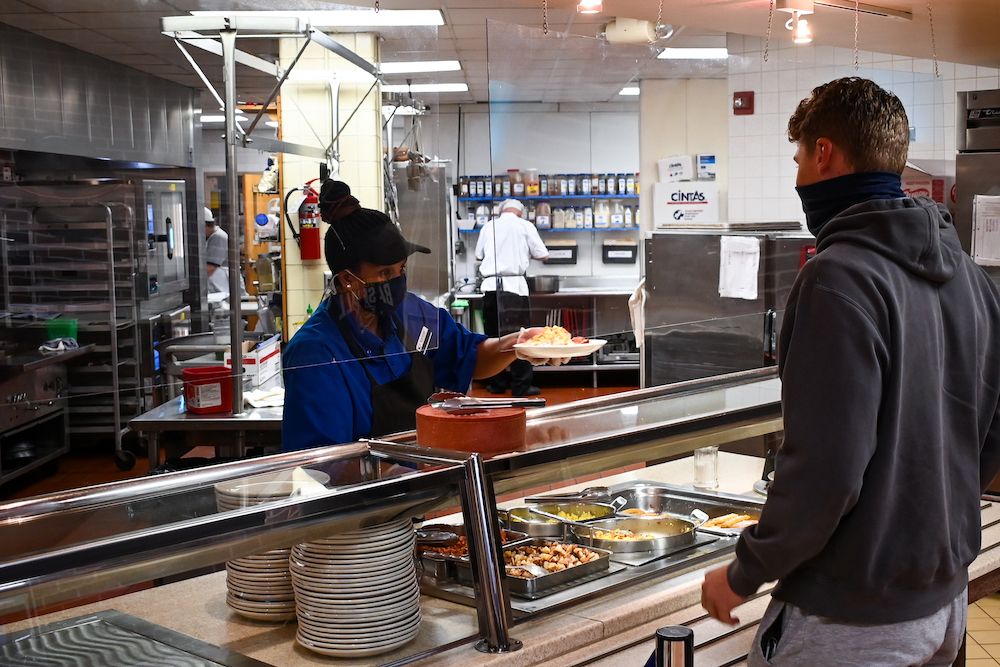Sodexo shortages lead to delays, fewer services

Throughout the nation, businesses have been facing staffing and product shortages due to COVID-19, and the Ordal Dining Hall is no exception.
With the pandemic continuing, Sodexo is experiencing issues in getting certain foods. Additionally, it’s facing a shortage of workers to prepare meals.
Food shortages are driving prices up in restaurants and grocery stores across the country, and Augustana’s dining hall is seeing direct evidence of this. Executive Chef Justin Anderson provided the price of chicken wings as an example. Last year, chicken wings cost $101 a case. This year, the price has increased to $198.
“It has almost doubled in price,” Anderson said. “And that’s if you can get it.”
In addition to price increases, food deliveries have become inconsistent. Food delivery trucks for Augustana have often arrived late, and Dining Services does not always know what items they will actually receive with each shipment.
Anderson said this is the result of their food provider being short 33 truck drivers, as well as the provider warehouse operating at a third of their normal capacity. According to Lewis, these inconsistent deliveries can sometimes impede Dining Services from offering the meals, and the variety, that they would like to.
Anderson said the cause of the shortages is “100% because of the pandemic.”
According to Dustin Hansen, marketing coordinator for Dining Services, the pandemic led to a nationwide shortage of workers in many job sectors, from food production to transportation, all of which impact what Dining Services can offer students.
In the service industry alone, 1.2 million people left the workforce when the pandemic hit and said they did not plan to return, according to Lewis. Augustana Dining Services has felt the effects of this firsthand.
Although Dining Services is short-staffed, Lewis said it is not the result of Augustana offering noncompetitive wages, but something that businesses across the country are dealing with.
“We’re in a very competitive spot, but it’s still tough for us to get people,” Lewis said. “It’s not like we don’t pay well. We pay exceptionally well, plus we have excellent benefits.”
Anderson said that Dining Services has a plan to mitigate these obstacles: “pivot.”
As part of this strategy, Hansen said Dining Services has offered more self-serve stations and has gotten creative with recipes. The lack of staff, however, has caused Dining Services to cut popular aspects of the Dining Hall like the omelette station and the salad bar, as they do not have enough people to staff every station.
Junior Reese Hanna said she has noticed the changes this year.
“Around the time that COVID hit, there was a very obvious shift in selection, and overall quality seemed to change, but I think most people inferred that it was because of COVID,” Hanna said.
Looking toward the future, Dining Hall leadership said they do not see things going exactly back to normal.
“I don’t foresee people coming back to the market to work. I see us getting creative,” Anderson said. “Things are just going to be a little different.”
As for students, Hanna said she thinks increased communication in the future would be beneficial for helping students understand the differences they see in the dining hall.
Although the pandemic has made it difficult for business to operate as usual at the Ordal Dining Hall, Lewis said Dining Services plans to continue providing students with options and offering quality products.



